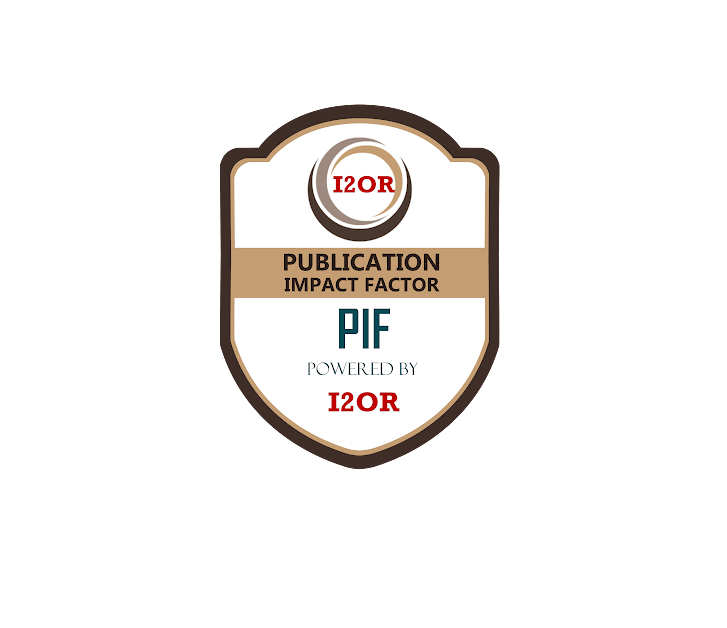THERAPEUTIC INTERVENTIONS FOR ANXIETY DISORDERS: AN INTEGRATIVE REVIEW
DOI:
https://doi.org/10.53612/recisatec.v2i10.200Palavras-chave:
Anxiety Disorders, Therapeutics, Nursing, Psychiatric Nursing, Mental Health, Health StrategiesResumo
Backgroud: Anxiety disorders are characterized by excessive emotional responses that generate major disturbances, causing cognitive and behavioral changes and triggering somatic manifestations. Therapeutic interventions show relevance and significant results for the treatment of anxiety. Aim: To identify therapeutic interventions used in the treatment of anxiety disorders. Method: A search for publications indexed in three electronic databases was conducted from January to March 2021. Titles, abstracts, and full-text reading by two independent reviewers were analyzed and classified by level of evidence developed by the Oxford Centre for Evidence-Based Medicine. Results: It resulted in 27 studies that observed the following therapeutic interventions: Psychoeducation; Mindfulness; Evidence-Based Behavioral Therapy; Applied Relaxation; Transdiagnostic CBT; Dialectical Behavioral Therapy; Positive Activity Techniques; Individual and Group CBT; Transcendence Technique Multifaceted Spiritually Based Intervention; Unified Protocol for Transdiagnostic Treatment of Emotional Disorders; Positive Activity Intervention Protocol; and Art Therapy. Conclusions: Of the therapeutic interventions used for the treatment of anxiety disorders, Mindfulness and Psychoeducation were the interventions of greater choice among the studies, which bring large benefit and autonomy to patients, considering that the implementation of these interventions can be performed by nurses and a multidisciplinary team in primary care services, also enabling the reduction of costs to the health system.
Downloads
Referências
American Psychiatric Association. Diagnostic and statistical manual of mental disorders: DSM-5. 5th ed. Translation: Maria Inês Corrêa Nascimento. Technical review: Aristides Volpato Cordioli. Porto Alegre: Artmed; 2014.
World Health Organization. Depression and other common mental disorders. [Internet]. 2017 [cited 2020 August 12].
http://www.who.int/mental_health/management/depression/prevalence_global_health_estimates/en/.
Craske MG, Stein MB, Eley TC, Milad MR, Holmes A, Rapee RM, Wittchen H-U. Anxiety disorders. Nat. Rev. Dis. Primers. 2017;3(1):1-19. DOI: https://doi.org/10.1038/nrdp.2017.24
Mangolini VI, Andrade LH, Wang Y-P. Epidemiology of anxiety disorders in regions of Brazil: A literature review. J. Med. 2019;98:415-422. DOI: https://doi.org/10.11606/issn.1679-9836.v98i6p415-422
Abar B, Holub A, Lee J, Derienzo V, Nobay F. Depression and anxiety among emergency department patients: Utilization and barriers to care. Acad Emerg Med. 2017;24:1286-1289. DOI: https://doi.org/10.1111/acem.13261
Leahy RL. Livre da ansiedade. Porto Alegre: Artmed;2011.
Wang YP, Chiavegatto AD, Campanha AM, Malik AM, Mogadouro MA, Cambraia M, et al. Patterns and predictors of health service use among people with mental disorders in São Paulo metropolitan area, Brazil. Epidemiol Psychiatr Sci. 2017;26:89-101. DOI: https://doi.org/10.1017/S2045796016000202
Hendriks SM, Spijker J, Licht CMM, Hardeveld F, Graaf R, Batelaan NM, et al. Long-term disability in anxiety disorders. Bmc Psychiatry. 2016;16:1-8. DOI: https://doi.org/10.1186/s12888-016-0946-y
National Institute for Health and Care Excellence. Anxiety disorders. 2014. https://www.nice.org.uk/guidance/qs53.
Nanda International Inc. NANDA-I Nursing Diagnoses: Definitions and Classification - 2018/2020. 2018.
Santos U, Lima A, Macedo J, Biazussi H. Psychological Vulnerability and Generalized Anxiety Disorder: From Diagnosis to Treatment of Generalized Anxiety. J Business Techn. 2020;16:104-117.
National Alliance on Mental Illness. Psychosocial Treatments. [Internet]. 2020 [cited 2020 December 4]. https://www.nami.org/About-Mental-Illness/Treatments/Psychosocial-Treatments.
Kreslins A, Robertson AE, Melville C. The effectiveness of psychosocial interventions for anxiety in children and adolescents with autism spectrum disorder: A systematic review and meta-analysis. Child Adolesc. Psychiatry Ment. Health. 2015;9. DOI: https://doi.org/10.1186/s13034-015-0054-7
Wolitzky-Taylor K, Zimmermann M, Arch JJ, De Guzman E, Lagomasino I. Has evidence-based psychosocial treatment for anxiety disorders permeated usual care in community mental health settings? Behav. Res. Ther. 2015;72:9-17. DOI: https://doi.org/10.1016/j.brat.2015.06.010
Melo ZM, Pegoraro NPJ, Santos MA, Pillon SC. Attitudes and knowledge of nursing technicians about care for patients with mental disorders. Electronic Journal of Nursing. [Internet]. 2021 [cited 2021 March 7]. https://revistas.ufg.br/fen/article/view/37746
Pedrosa KM, Couto G, Luchesse R. Group cognitive-behavioral intervention for anxiety: outcome assessment in primary care. Psychology - Theory and Practice. 2017;19. DOI: https://doi.org/10.5935/1980-6906/psicologia.v19n3p43-56
Anima Education Group. Systematic and integrative literature review manual: Evidence-based research. Belo Horizonte: Anima Education. [Internet]. 2014 [cited 2021 March 7].
Mendes KDS, Silveira RCCP, Galvão CM. Integrative review: Research method for the incorporation of evidence in health and nursing. Text Context Nursing 2008;17:758-764. DOI: https://doi.org/10.1590/S0104-07072008000400018
Centre for Evidence-Based Medicine. (2009, March). Oxford Centre for Evidence-Based Medicine: Levels of Evidence (March 2009). Oxford: University of Oxford. [Internet]. 2009 [cited 2021 March 7]. https://www.cebm.ox.ac.uk/resources/levels-of-evidence/oxford-centre-for-evidence-based-medicine-levels-of-evidence-march-2009.
Ouzzani M, Hammady H, Fedorowicz Z, Elmagarmid A. Rayyan-a web and mobile app for systematic reviews. Syst. Rev. 2016;5(1). DOI: https://doi.org/10.1186/s13643-016-0384-4
Page MJ, McKenzie JE, Bossuyt PM, Boutron I, Hoffmann TC, Mulrow CD, et al. The PRISMA 2020 statement: an updated guideline for reporting systematic reviews. BMJ 2021;372:71. DOI: https://doi.org/10.1136/bmj.n71
Goldin PR, Morrison AS, Jazaieri H, Heimberg RG, Gross JJ, Goldin P, Irene, B. Trajectories of social anxiety, cognitive reappraisal, and mindfulness during an RCT of CBGT versus MBSR for social anxiety disorder HHS public access. Behav Res Ther. 2017;97:1-13. DOI: https://doi.org/10.1016/j.brat.2017.06.001
Maas J, Balkom T, Assen M, Rutten L, Janssen D, Mastrigt M, Bekker M. Enhancing autonomy-connectedness in patients with anxiety disorders: A pilot randomized controlled trial. Front. Psychiatry. 2019;10. DOI: https://doi.org/10.3389/fpsyt.2019.00665
Norton PJ, Barrera TL Transdiagnostic versus diagnosis-specific CBT for anxiety disorders: A preliminary randomized controlled noninferiority trial. Depress Anxiety. 2012;29(10):874-882. DOI: https://doi.org/10.1002/da.21974
Seekles W, Straten A, Beekman A, Marwijk H, Cuijpers P. Effectiveness of guided self-help for depression and anxiety disorders in primary care: A pragmatic randomized controlled trial. Psychiatry Research, 2011;187(1-2):113-120. DOI: https://doi.org/10.1016/j.psychres.2010.11.015
Sinnema H, Majo MC, Volker D, Hoogendoorn A, Terluin B, Wensing M, Balkom A. Effectiveness of a tailored implementation programme to improve recognition, diagnosis and treatment of anxiety and depression in general practice: A cluster randomised controlled trial. Implementation Sci. 2015;10. DOI: https://doi.org/10.1186/s13012-015-0210-8
Treanor M, Erisman SM, Salters-Pedneault K, Roemer L, Orsillo SM. An acceptance-based behavioral therapy for GAD: Effects on outcomes from three theoretical models. Depress Anxiety. 2011;28(2):127-136. DOI: https://doi.org/10.1002/da.20766
Zimmermann T, Puschmann E, van den Bussche H, Wiese B, Ernst A, Porzelt S, Scherer M. Collaborative nurse-led self-management support for primary care patients with anxiety, depressive or somatic symptoms: Cluster-randomised controlled trial (findings of the SMADS study). Int. J. Nurs. Stud. 2016;63:101-111. DOI: https://doi.org/10.1016/j.ijnurstu.2016.08.007
Khoramnia S, Bavafa A, Jaberghaderi N, Parvizifard A, Foroughi A, Ahmadi M, Amiri S. The effectiveness of acceptance and commitment therapy for social anxiety disorder: A randomized clinical trial. Trends Psychiatry Psychother. 2020;42(1):30-38. DOI: https://doi.org/10.1590/2237-6089-2019-0003
Mennin DS, Fresco DM, Ritter M, Heimberg RG. An open trial of emotion regulation therapy for generalized anxiety disorder and co-occurring depression. Depress Anxiety. 2015;32:614-623. DOI: https://doi.org/10.1002/da.22377
Vogel PA, Hagen R, Hjemdal O, Solem S, Smeby MCB, Strand ER, Wells A. Metacognitive therapy applications in social anxiety disorder: an exploratory study of the individual and combined effects of the attention training technique and situational attentional refocusing. J. Exp. Psychopathol. 2016;7(4):608-618. DOI: https://doi.org/10.5127/jep.054716
Eustis EH, Hayes-Skelton SA, Roemer L, Orsillo SM. Reductions in experiential avoidance as a mediator of change in symptom outcome and quality of life in acceptance-based behavior therapy and applied relaxation for generalized anxiety disorder. Behav. Res. Ther, 2016;87:188-195. DOI: https://doi.org/10.1016/j.brat.2016.09.012
Hayes-Skelton SA, Roemer L, Orsillo SM. A randomized clinical trial comparing an acceptance-based behavior therapy to applied relaxation for generalized anxiety disorder. J Consult Clin Psychol. 2013;81(5):761-773. DOI: https://doi.org/10.1037/a0032871
Hayes-Skelton SA, Calloway A, Roemer L, Orsillo SM. Decentering as a potential common mechanism across two therapies for generalized anxiety disorder. J. Consult. Clin. Psychol. 2015;83(2):395-404. DOI: https://doi.org/10.1037/a0038305
Barlow DH, Farchione TJ, Bullis JR, Gallagher MW, Murray-Latin H, et al. (2017). The unified protocol for transdiagnostic treatment of emotional disorders compared with diagnosis-specific protocols for anxiety disorders: A randomized clinical trial. JAMA Psychiatry. 2017;74(9):875-884. DOI: https://doi.org/10.1001/jamapsychiatry.2017.2164
Khakpoor S, Saed O, Armani Kian A. Emotion regulation as the mediator of reductions in anxiety and depression in the Unified Protocol (UP) for transdiagnostic treatment of emotional disorders: Double-blind randomized clinical trial. Trends Psychiatry Psychother. 2019;41(3):227-236. DOI: https://doi.org/10.1590/2237-6089-2018-0074
Ejeby K, Savitskij R, Öst LG, Ekbom A, Brandt L, Ramnerö J, Backlund LG. Randomized controlled trial of transdiagnostic group treatments for primary care patients with common mental disorders. Family Practice. 2014;31(3):273-280. DOI: https://doi.org/10.1093/fampra/cmu006
Taylor CT, Lyubomirsky S, Stein MB. Upregulating the positive affect system in anxiety and depression: Outcomes of a positive activity intervention. Depress Anxiety. 2017;34(3):267-280. DOI: https://doi.org/10.1002/da.22593
Taylor CT, Pearlstein SL, Kakaria S, Lyubomirsky S, Stein MB. Enhancing social connectedness in anxiety and depression through amplification of positivity: Preliminary treatment outcomes and process of change. Cogn. Ther. Res. 2020;44(4):788-800. DOI: https://doi.org/10.1007/s10608-020-10102-7
Hirsch CR, Beale S, Grey N, Liness S (2019). Approaching cognitive behavior therapy for generalized anxiety disorder from a cognitive process perspective. Front. Psychiatry. 2019;10. DOI: https://doi.org/10.3389/fpsyt.2019.00796
Neufeld CB, Palma PC, Caetano KAS, Brust-Renck PG, Curtiss J, Hofmann SG. A randomized clinical trial of group and individual cognitive-behavioral therapy approaches for social anxiety disorder. Int. J. Clin. Health Psychol. 2020;20(1): 29-37. DOI: https://doi.org/10.1016/j.ijchp.2019.11.004
Yoshinaga N, Ohshima F, Matsuki S, Tanaka M, Kobayashi T, Ibuki H, Shimizu E. A preliminary study of individual cognitive behavior therapy for social anxiety disorder in Japanese clinical settings: A single-arm, uncontrolled trial. BMC Res. Notes. 2013;6(1). DOI: https://doi.org/10.1186/1756-0500-6-74
Abbing A, Baars EW, de Sonneville L, Ponstein AS, Swaab H. The effectiveness of art therapy for anxiety in adult women: A randomized controlled trial. Front. Psychiatry. 2019;10. DOI: https://doi.org/10.3389/fpsyg.2019.01203
Abbing A, de Sonneville L, Baars E, Bourne D, Swaab H. Anxiety reduction through art therapy in women. Exploring stress regulation and executive functioning as underlying neurocognitive mechanisms. PLoS ONE. 2019;14(12). DOI: https://doi.org/10.1371/journal.pone.0225200
Koszycki D, Bilodeau C, Raab-Mayo K, Bradwejn J. A multifaith spiritually based intervention versus supportive therapy for generalized anxiety disorder: A pilot randomized controlled trial. J. Clin. Psychol. 2014;70(6):489-509. DOI: https://doi.org/10.1002/jclp.22052
Norton PJ. A randomized clinical trial of transdiagnostic cognitive-behavioral treatments for anxiety disorder by comparison to relaxation training. Behav. Ther. 2012;43(3):506-517. DOI: https://doi.org/10.1016/j.beth.2010.08.011
Millstein DJ, Orsillo SM, Hayes-Skelton SA, Roemer L. Interpersonal problems, mindfulness, and therapy outcome in an acceptance-based behavior therapy for generalized anxiety disorder HHS public access. Cogn Behav Ther. 2015;44(6):491-501. DOI: https://doi.org/10.1080/16506073.2015.1060255
Stangier U, Schramm E, Heidenreich T, Berger M, Clark DM. Cognitive therapy vs interpersonal psychotherapy in social anxiety disorder: A randomized controlled trial. Arch. Gen. Psychiatry. 2011;68(7):692-700. DOI: https://doi.org/10.1001/archgenpsychiatry.2011.67
Cordioli AV, Grevet EH. Psicoterapias: Abordagens atuais. São Paulo: Artmed; 2019.
Souza IM, Machado-De-Sousa JP. Brazil: World leader in anxiety and depression rates. Rev. Bras. Psiquiatr. 2017;39:384. DOI: https://doi.org/10.1590/1516-4446-2017-2300
Stein DJ, Hollander E, Rothbaum BO. Textbook of anxiety disorders. Washington: American Psychiatric Publishing; 2009.
Strine TW, Mokdad AH, Balluz LS, Gonzalez O, Crider R, Berry JT, Kroenke K. Depression and anxiety in the United States: Findings from the 2006 behavioral risk factor surveillance system. Psychiatr. Serv. 2008;59(12):1383-1390. DOI: https://doi.org/10.1176/ps.2008.59.12.1383
Oliveira MR, Junges JR. Mental health and spirituality/religion: The psychologists' view. Psychol. Stud. 2012;17(3):469-476. DOI: https://doi.org/10.1590/S1413-294X2012000300016
Nogueira CA, Crisostomo KN, Souza RS, Prado J de M. The importance of psychoeducation in cognitive-behavioral therapy: A systematic review. Journal of Health Sciences of Western Bahia – Higia. 2017;2(1):108-120.
Beentjes TAA, Gaal BGI, Achterberg T, Goossens PJJ. Self-management support needs from the perspectives of persons with severe mental illness: A systematic review and thematic synthesis of qualitative research. J Am Psychiatr Nurses Assoc. 2020;26(5):464-482. DOI: https://doi.org/10.1177/1078390319877953
Richards A, Barkham M, Cahill J, Richards D, Williams C, Heywood P. PHASE: A randomised, controlled trial of supervised self-help cognitive behavioural therapy in primary care. Br J Gen Pract. 2003.
Behenck A, Wesner AC, Finkler D, Heldt E. Contribution of group therapeutic factors to the outcome of cognitive–behavioral therapy for patients with panic disorder. Arch. Psychiatr. Nurs. 2017;31(2):142-146. DOI: https://doi.org/10.1016/j.apnu.2016.09.001
Tyrer H, Tyrer P, Lisseman-Stones Y, McAllister S, Cooper S, Salkovskis P, et al. Therapist differences in a randomised trial of the outcome of cognitive behaviour therapy for health anxiety in medical patients. Int. J. Nurs. Stud. 2015;52(3):686-694. DOI: https://doi.org/10.1016/j.ijnurstu.2014.11.013
Oosterbaan DB, Verbraak MJPM, Terluin B, Hoogendoorn AW, Peyrot WJ, Muntingh A, Van Balkom AJLM. Collaborative stepped care v. Care as usual for common mental disorders: 8-month, cluster randomised controlled trial. Br. J. Psychiatry. 2013;203(2):132-139. DOI: https://doi.org/10.1192/bjp.bp.112.125211
Wesner AC, Behenck A, Finkler D, Beria P, Guimarães LSP, Manfro GG, et al. Resilience and coping strategies in cognitive behavioral group therapy for patients with panic disorder. Arch. Psychiatr. Nurs. 2019;33(4):428-433, 2019. DOI: https://doi.org/10.1016/j.apnu.2019.06.003
Costa CO, Branco JC, Vieira IS, Souza LD de M, Silva RA. Prevalence of anxiety and associated factors in adults. J Bras Psiquiatr. 2019;68(2):92-100. DOI: https://doi.org/10.1590/0047-2085000000232
Fernandes MA, Meneses RT, Franco SLG, Silva GS, Feitosa CDA. Anxiety disorders: Experiences of users of an outpatient clinic specializing in mental health. Nursing Journal UFPE. 2017;11(10):3836-3844.
Downloads
Publicado
Como Citar
Edição
Seção
Categorias
Licença
Copyright (c) 2022 RECISATEC - REVISTA CIENTÍFICA SAÚDE E TECNOLOGIA - ISSN 2763-8405

Este trabalho está licenciado sob uma licença Creative Commons Attribution 4.0 International License.
Os direitos autorais dos artigos/resenhas/TCCs publicados pertecem à revista RECISATEC, e seguem o padrão Creative Commons (CC BY 4.0), permitindo a cópia ou reprodução, desde que cite a fonte e respeite os direitos dos autores e contenham menção aos mesmos nos créditos. Toda e qualquer obra publicada na revista, seu conteúdo é de responsabilidade dos autores, cabendo a RECISATEC apenas ser o veículo de divulgação, seguindo os padrões nacionais e internacionais de publicação.





















































